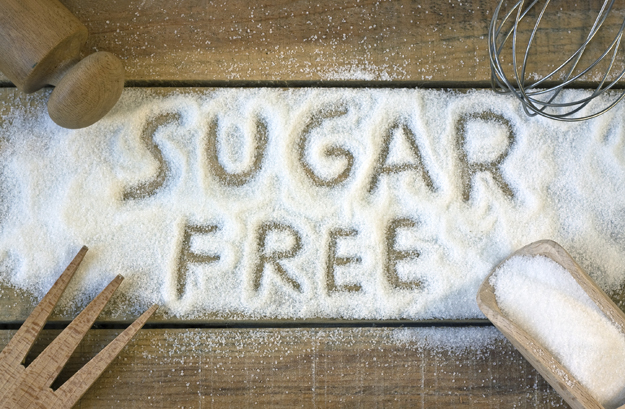10 Simple Ways To Curb Your Sugar Addiction

Busted: Popular Myths About Diets
July 26, 2020
5 Healthy Benefits Of Eating Dinner Early
July 27, 2020The trends for consuming sugar have changed over the years as more people now battle sugar addiction. Before, we only ate sugar found naturally in food or the occasional sugar cubes to go with tea and coffee. Now, with easily accessible processed foods like ice cream, soda, juices, etc., we consume over twice that amount of sugar. A third of the calories we consume today come from either pure sugar or white flour (which acts like sugar when digested). Our bodies cannot cope with this sugar overload.
When you consume sugar, it gives you an initial high, after comes the crash, then you crave more sugar, and take some more. This cycle is a sign of addiction. Sugar is a mood-altering drug; after the initial highness, you become moody, anxious, till you eventually feel exhausted. These repetitive highs and lows you experience put a strain on your adrenal glands.
Sugar addiction is dangerous to your health because sugar has been linked to many health problems. Some of these problems include autoimmune diseases, chronic infections, decreased immunity, diabetes, heart diseases, candida, ADD, irritable bowel syndrome, and chronic fatigue.
READ ALSO: Important Things Your Body Is Saying About Your Health
Go cold turkey.
Stop eating all forms of sugar and keep them out of your immediate surrounding. You cannot snack on things that are not there.
Eat whole foods.
Whole foods are natural and have little to no processed sugar. Switching your diet from majorly processed foods to whole foods is a way to manage your sugar addiction and live clean.
Sleep more.
When you don’t get enough sleep, you consume too much sugar during the day to make up for the exhaustion. If you are trying to break your sugar habit, then you should sleep for at least 8 hours daily to make sure you are well-rested.
Add healthy protein and fat to every meal.
Foods that are rich in protein and fat help to manage your blood sugar levels. Healthy sources of protein include nuts, eggs, seeds, fish, grass-fed meats, and chicken. Healthy sources of fat include avocado, nuts and seeds, and fish rich in omega-3 fatty acids.
Manage your stress levels.
Stress fuels your sugar cravings. Most times, people use sugar to deal with stress from underlying issues. Figure out what these issues are and look for a healthier substitute for managing stress levels.
Be physical.
Physical activities like exercise or yoga can help you reduce stress, decrease your sugar cravings, and boost energy.
Eat the right carbs.
The average breakfast is rich in starchy carbs. These are the worst possible things for a sugar addict to eat as they make you crave sugar all day. Instead, substitute your starchy carbs for non-starchy vegetables like mushrooms, green beans, onions, tomatoes, asparagus, peppers, and eggplant.
Don’t skip any meals.
Don’t skip any mealtime. You can have breakfast, lunch, and dinner, with two snack periods in between. Or you can eat five small meals throughout the day. Either one works fine, so long as you are not skipping meals. If you don’t eat regularly, your blood sugar level drops and causes you to crave sugar.
Do a detox.
A detox will help you reset your appetite and curb your sugar cravings. After the initial withdrawal symptoms, your body adjusts, and the sugar cravings disappear.
Avoid substituting artificial sweeteners for sugar.
Learn to recognize other terms for sugar on labels. Low-sugar and sugar-free does not mean there are no sweeteners. Some of these sweeteners include brown sugar, honey, molasses, sucrose, dextrose, corn sugar, high-fructose corn syrup, and corn syrup.
You can stay connected with us on social media for amazing and value-adding content.

